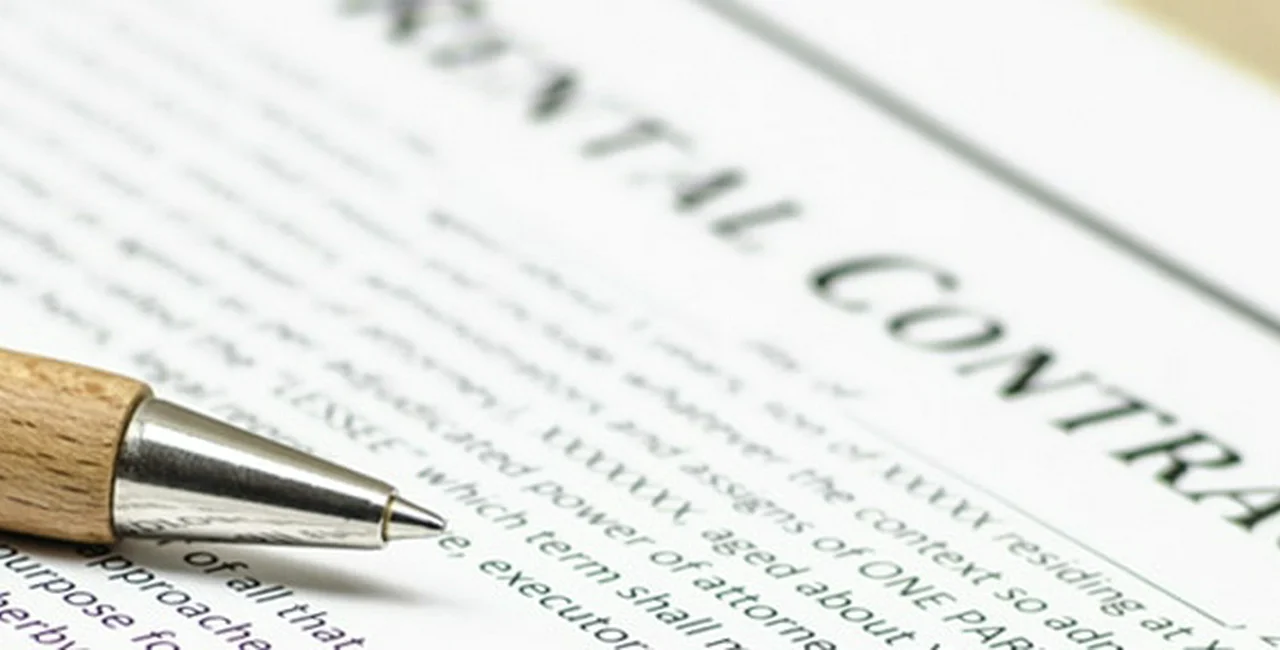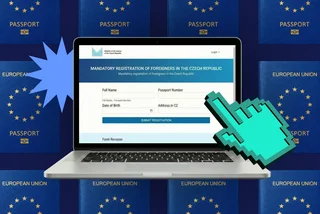Ad: Moving to Prague? Get a fast & easy moving quote from Expats.cz trusted partners
Finding a new home in a foreign country is already a stressful enough experience without taking into account all the additional negotiations that go along with renting a property. The whole process can come with a lot unexpected surprises, but it’s easier if you’re well prepared.
Whether you’re just starting the relocation process or already found your new apartment, here are some valuable tips you should know to make your move as stress-free as possible.
Things to Know About Your Contract
Rental periods can begin at any time, so there’s no need to wait for the first day of the month to start your contract.
All contracts require you to include your name, passport number, and date of birth. It’s very important that the information you provide matches your passport exactly, so make sure you double check your contract! If you’re planning to relocate with your family, make sure to include their details as well, since they’ll need to be on your contract when you announce your address to the Foreign Police.
You should also be aware the Civil Code allows for the automatic renewal of a rental contract if a tenant continues living in an apartment 3 months after the contract ends, and the landlord fails to give proper notice. If you don’t want to have an automatic renewal, make sure to have it stated clearly in your contract.
If your contract requests a rent increase according to the inflation rate, you should try to negotiate having it removed. This isn’t common for the Czech rental market, but every once in while you may come across a landlord who tries to include it.
One last important detail: Be sure that the proof of ownership of the property is attached to the contract before you sign it.
Understanding Your Rights and Obligations
Tenancy laws can be tricky no matter where you’re living. Before you sign anything, check to make sure your rental agreement is fair.
Here are some of the most important things you to know about your rights as a renter:
Put your pet in writing. If you have a pet or plan to get one in the future, make an agreement with your landlord and include it in your contract.
Your landlord has the right to access your apartment. Make sure that the terms and conditions of these inspections are included in your contract. It’s standard to agree to 3 visits a year with a 48 to 72 hour notice period.
Tell your landlord if something is broken. You’re expected to report damages in your rental property. If you fail to report a problem, you’ll be held responsible if the damage gets worse! It’s always a good idea to request repairs from landlord by email with a photo of the issue.
You don’t need insurance, but it’s a good idea. The owner of your apartment has to have property insurance. Some landlords may ask you to get liability insurance, but it normally only costs a few hundred Czech crowns a year. From personal experience, better safe than sorry!
Paying Your Landlord
Deposits are typically paid when you sign your contract. You can expect to pay anywhere between 1 to 3 months rent up front, depending on the terms you negotiate. Your deposit protects owners from risks such as late rent or utilities, and covers any potential damages you might cause while living in their apartment.
Utilities are usually paid to your landlord each month along with your rent. These payments are advanced deposits, which are calculated based on the average consumption from the previous year.
Legally, your landlord has to show you the balance of the real consumption once a year, after the landlord gets their bills from the providers. Once you’ve seen the bill, you can settle the payment with your landlord based on what was actually consumed. Be aware that they should show you the copies of the actual bills and not just a summary report!
It’s also important to remember that utilities fees are about 30-50% higher if you live somewhere with security, reception, or property management.
You’re expected to pay your landlord in full every month. If you’re making international payments, you should plan to transfer more than the total amount of your rent to cover the exchange rate and any bank fees. You can find the total amount of your rent and utilities in your contract. It’s also a good idea to ask your landlord for a record of the full amount received and request that overpayments be deducted from your next payment.
Depending on the landlord, you might be asked to transfer the electric and gas meters to your own name. This just means, you pay your own deposits directly. Bills can be sent to you via email or in the mail once a month, quarterly, or annually.
Don’t worry about transferring the meters! It’s a simple process that can be done online. If you’re getting lost in translation, don’t hesitate to ask your landlord for help. Czech is a tough language, so no one expects you go it alone.
You should also know you’re responsible for any minor repairs and general maintenance costs under the Czech Civil Code. Basically, this is to make sure your landlord doesn’t get called every time a bulb burns out in your apartment.
However, the law isn’t clear about the exact amount of a “minor repair”, so make sure to negotiate with your landlord. It’s normally something between 1,500 to 3,000 CZK depending on the quality and size of your apartment.
Last, but certainly not least, the Czech Civil Code does NOT allow any penalties!
Keep Good Records
When it’s time to move in, make sure you write down all the defects that are found during the handover meeting. If it’s a problem that can be fixed, set a due date with your landlord. You should also send photos of the problems to avoid any possible disputes later on down the road.
By the same token, you should go over your apartment again with your landlord before you move out. If you agree there aren’t any problems, make sure you get a statement of “no claims to the apartment/house”.
My final piece of advice is to take your time and pay attention. Go explore the neighbourhood, scout out the parking, get to know your future landlord, and always be ready to negotiate!
This is a sponsored article provided by our partner Relocare.












 Reading time: 5 minutes
Reading time: 5 minutes 





















